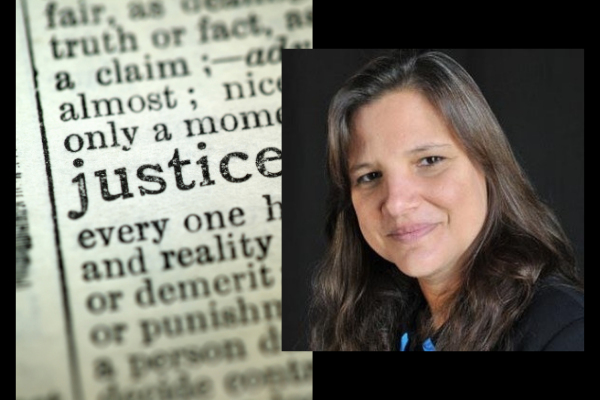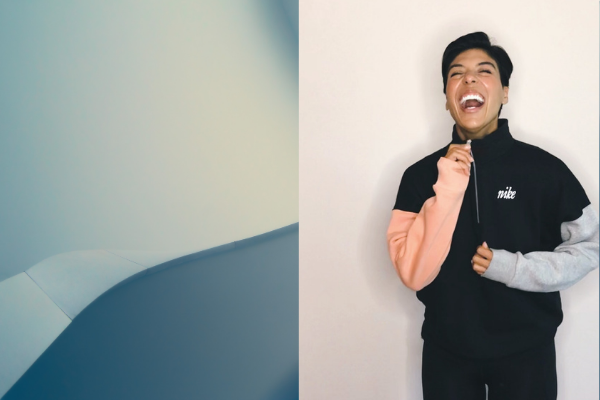Name: Rob Alexander
Location: From Kansas City, lives in Chicago
What do you do? Managing Partner & Co-Founder at Vanguard Advocates, LLP
What’s a typical day like for you?
It’s a lot! I am simultaneously a criminal defense attorney, a law firm administrator, and a contract attorney. As a criminal defense attorney, I do a lot of research, a lot of hand-holding, a lot of calming and explaining to my clients that words have different meanings in the law, and trying to manage other attorneys and deal with small fires, such as a cash flow issue.
Why did you decide to join the Chicago Bar Foundation Justice Entrepreneurs Project?
Because I had just been sworn in and I knew from past experience that I didn’t want to work at another law firm. But I wanted to use my degree and life experience to advocate and help guide people through a byzantine and unnecessarily confusing legal system.
What inspired you to go to law school?
When I was in high school, minimum wage in Kansas City was $5.15 an hour and the Kansas City Metropolitan Bar Association had a summer internship program that paid $12.00 per hour and I needed that money. I was placed at a big firm in town and had a good experience. I got to do fun things like ask a question at a deposition and I also had the chance to learn from several attorneys there about different career paths and the challenges I might face. That experience set me up to get better jobs down the road.
I went to college to be a teacher and intended to go on and get a PhD in African American Studies, but as I approached graduation, a six to seven year commitment seemed like a lot and the economy had just crashed and I wasn’t sure I could get a job with that degree, so I instead took the LSAT, applied for law school, got a scholarship from DePaul and went.
Another reason I thought it would be a good idea to go to law school is because in college, for my African American studies program, I had to do a year-long internship and mine was at the Public Defenders Office in Atlanta. Part of my internship was to research and trace the history of the office at which I was working so I researched indigent criminal defense all the way back to the 1300’s in England, and I realized this system is screwed and it needs more people. So then I wanted to be a public defender.
What do you like most about what you do now?
I didn’t realize I’d love this but I really love handling the business aspects of my law firm! I also really like my clients, even the annoying ones. I am really happy that they have chosen to work with me.
I know that your engagement rate is really high. What is your secret?
Yeah, if I do a consultation, people sign (lol). I have spent a lot of time practicing being a good listener. A lot of people don’t let you talk and they only listen to respond and I’ve spent a lot of time training myself out of that. I prepare my questions in advance but then I’ll let a question go so I can listen to what a client is saying, and I let them spend a good amount of time telling me how they feel about the situation, and I’ll ask if I can interject a question if we’re getting too off track, but generally I let them talk. Because I conduct research in advance, I’m able to discuss their defenses and sentencing possibilities, but also, toward the end of the consultation, I try to make them laugh, to break the tension. I just want to let them know that they are not alone, I am here for them, and that we are working on this together. And it’s still the same way on zoom.
And had I done this right out of law school, I don’t think I would have been as successful because when I left law school, I still thought of things in such a legalistic, stringent and straight-jacketed manner, whereas now, after being a cook and having had to work multiple jobs to pay rent, I understand (1) paying for a lawyer is a lot of money, and (2) I don’t understand half of what’s going on in someone’s case before I research it, so I go in with some humility and I do let the clients talk; whereas, when I listen to some other attorneys talk to their clients I’m like wow, why would anyone ever hire you?
How do you define success?
For clients, in my consultation I always ask them what their goal is, and if I do what we agreed to do, then that’s a success. Generally, success for me is being able to look at myself in the mirror and know that I’m doing good and honest work and I am still moving forward.
What has been the greatest challenge on your path and how did you work through it?
I’m still working through it and it’s my lack of practical knowledge and experience. They don’t teach you how to be a lawyer in law school! When I graduated from law school, I didn’t even know where the criminal courthouse was! Thankfully, I applied for the JEP and got in. I started with expungement, which was a good introduction because they are likely to be granted. But even just going to the clerk’s office was nerve racking, and going to court the first time was nerve racking, and getting that practical knowledge and experience was so beneficial. The people in the clerk’s office are oftentimes not kind to you or helpful and sometimes what they tell you is wrong. I also find that judges do not tend to have compassion for new attorneys and that lawyers and clerks hoard information about procedure, which is bizarre to me. We’re not in competition with each other so why withhold the information?
What has been your proudest moment professionally?
Winning the JEPY for Legal Service Delivery Innovation, and ending up in a tie for best business card.
What do you enjoy doing outside of work?
I like to try new recipes. I actually found a really nice brioche recipe the other day and it was beautiful. I like to hang out with my puppy and with some of my family that just moved to Chicago.
Do you think you might ever combine your interests in food and law?
Yes, we’re thinking down the road about having a food truck where we serve something and then talk with people about the law. We just need to do some research first but it is something we want to do.
What’s your go-to wellbeing activity?
Lying in my bed or sitting in my chair at my office and listening to audio books. I’m a big fan of fantasy and black speculative fiction. Right now I’m listening to N. K. Jemisin’s The City We Became. It’s narrated by Robin Miles and she’s amazing with accents and her voice is just so beautiful.
What is one thing about you that you think people would be surprised to learn about you?
One thing that often confuses and surprises people is that I became a cook after I graduated from law school. I did not want to work in the legal profession upon graduation because I was disgusted with the system and the interviewing process.
If you could wave a magic wand and change one thing about the legal profession, what would it be?
Just one thing?! I think it would be to get rid of the bar exam. It’s useless, it’s an unnecessary burden for people who have already spent hundreds of thousands of dollars on a degree, and if we want to gatekeep the profession, which I think we should do, we shouldn’t do it after people have accumulated that kind of debt. It doesn’t test anything useful and it just causes you to cram and not treat yourself well, and we would get in so much trouble if we practiced law that way! And it’s bizarre that the National Center for Bar Examiners is located in Wisconsin where they have diploma privilege!
What is one new thing you are hoping to learn from others in this community?
I like to understand how other attorneys approach the business aspect of their law firms, what drives them to make some decisions. I would also like to understand pricing and how people value their services and handle collections.
And what is one thing you are looking to share with others in this community?
I think I‘m good at encouraging people to take a chance and see how things go. That’s how you learn. I also like talking to people about leveraging technology to increase efficiency and bring down the cost of legal services.







